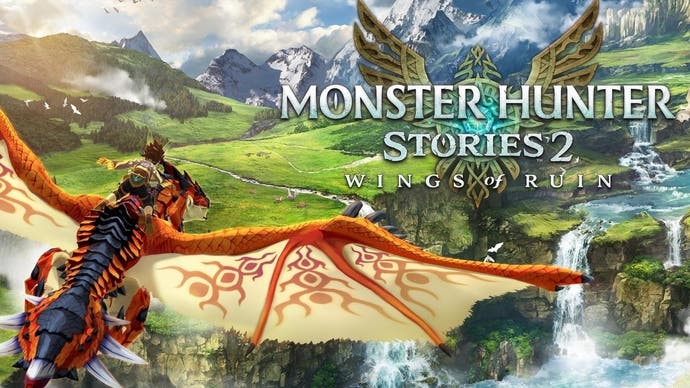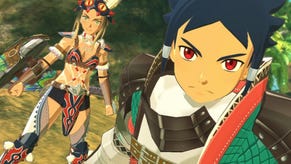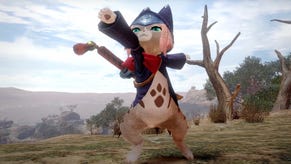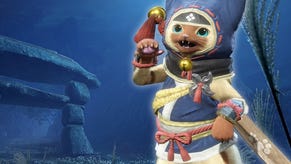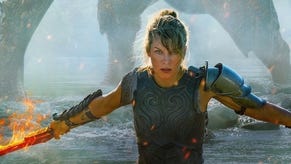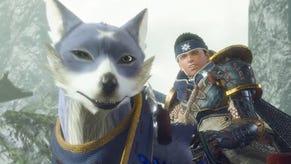Monster Hunter finally broke the west, but it wants to go broader still
Capcom talks us through its plan for Monster Hunter Stories 2.
When the original Monster Hunter Stories launched back in 2016, Capcom's series' wasn't exactly unloved, yet it was still a relatively niche concern in the west - loved by a dedicated core, but yet to capture the mainstream imagination.
How much can change over five years. Its sequel launches to a world that's truly fallen for Monster Hunter - thanks in no small part to the breakout success of Monster Hunter World, which opened up the series to a whole new audience, which was followed up handsomely by this year's exquisite Monster Hunter Rise.
Monster Hunter Stories 2 picks up the turn-based template of the original, and once again is being handled by Capcom's internal team with the assistance of Marvelous - only this time it's coming to both Switch and PC (where you can expect 144fps support among other bells and whistles), and day and date with its release in Japan.
Ahead of a demo releasing later this week, we sat down with series producer Ryozo Tsujimoto, Monster Hunter Stories 2: Wings of Ruin director Kenji Oguro and art director Takahiro Kawano to talk through what's changed this time out, and what's next for the series.
Before we get to Monster Hunter Stories 2, I wanted to rewind a little bit and talk about the genesis of the first game. What was the intention behind making a spin off, turn-based Monster Hunter?
Ryozo Tsujimoto: The genesis of the Stories series goes back about 13 years ago, actually - so about eight years before the original game even came out. We had ideas in our minds a few years into the Monster Hunter series - what would it be like to take this hunting action gameplay and translate it into a turn based Japanese RPG style system. It was just something that was bouncing around in our heads - series mainstay Kaname Fujioka and myself were talking and thinking it'd be fun, but nothing really concrete came of it until a few years later, when we had a chance to actually get a concept together and speak to the director Mr. Oguro. It was a matter of thinking about how to translate that action gameplay into turn based, but also how to differentiate from the main series visually. That was five years ago now, and that's how the series got started.
I've been playing a bit and it looks fantastic. When it comes to that visual atmosphere it's changed a bit - what were you trying to achieve this time out?
Kenji Oguro: With the original, we wanted to go a bit more broad appeal than the main series was at the time. But looking back at the feedback we got after the release of Monster Hunter stories, one, we probably skewed a little bit too much in a more childlike direction. And some players felt that it wasn't as grown up as they'd like to be seen playing. It's kind of the same idea where we want to take the feedback from one and based on that we want Monster Hunter Stories 2 to be more broadly appealing than the first game ended up being. And to do that, - we'll probably hear from the art director in a second - but we had to take a different approach on the graphics and make it more a little bit more grown up looking and feeling.
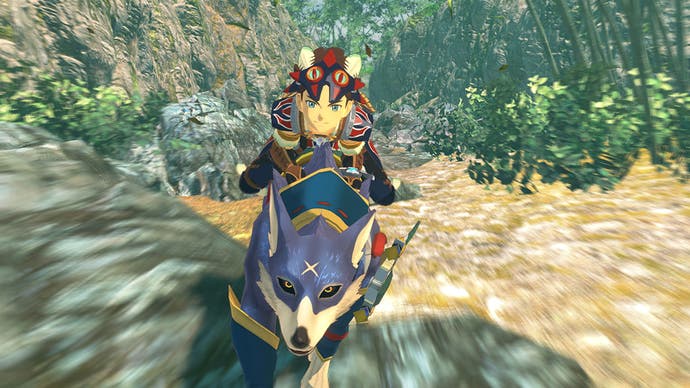
Takahiro Kawano: To achieve that goal of broadening the appeal, based on feedback from the first game I wanted to change up the proportions of the character designs. So you can see they look a bit less sort of chibi or what they call deformed in Japan. And they look a bit more grown up. There's more detail in ways that I think give the game a bit of a different, richer atmosphere - not just in the characters, but in the gear they wear, even in the stages that they inhabit.
I think the first game's stages were again, quite cute and abstract designs. And it's not to say that the game has gone hyper realistic now - but I looked at how to add elements of realism such as lighting effects and water effects that would actually keep that anime aesthetic whilst grounding it a little bit more.
What were the other main bits of feedback that you wanted to address from the first game with the sequel?
Kenji Oguro: The two biggest points would be the battle system and the monster breeding system. So for the battles, as you probably know there's a rock paper scissors approach to monster types - it's a way to replicate the feeling of a monster hunter game in which you're reading the monster's behaviour looking for its tells, and then learning how to strategize with your own attacks.
In the first game the system had a bit of randomness to it, so even if you're fighting a monster of one type, and you feel like you've read it and you know how to handle that type, it would sometimes randomly throw out an attack from a different type. That was intended to keep you on your toes a bit, but ultimately, we realised that people were finding it frustrating. So we've made that fairer now, and more consistent.
The other element that's an improvement is the monster breeding. In Monster Hunter Stories this was in the game, but it was kind of post game content - you couldn't really access it during the main story progression. I felt it was a bit of a shame to keep it there, because this idea of breeding monsters was so much fun that I wanted to make sure people could enjoy it. So that has been taken out of postgame and integrated into the storyline itself.
As you said with the first Monster Hunter Stories you wanted to take that turn based battle idea - I think the mix works phenomenally well and you did a really good job of getting the two to blend together. Have there ever been any other genres you wondered whether you could match Monster Hunter up with?
Kenji Oguro: I definitely want to make sure you don't misunderstand this as any kind of announcement! I think that you have to make sure when you're bringing a game series like this to a new genre, you can't just be like what if Monster Hunter but x - you have to have an idea that is based on the world of that game in a way that really makes sense and fits in with how the game feels.
It feels retrospectively really obvious, but for me personally maybe a crafting focused game. The game already has elements of collecting monster parts from slaying foes and using it to create gear which then leads to this gameplay loop of fighting again, again focused on creating gathering materials in the world to create hunter armour hunter weapons and then maybe even going on to create your own village. That kind of style, off the top of my head, could be a nice step for Monster Hunter but it's important when you make that kind of idea that you don't just shove the two together. You have to make sure that it's a natural fit.
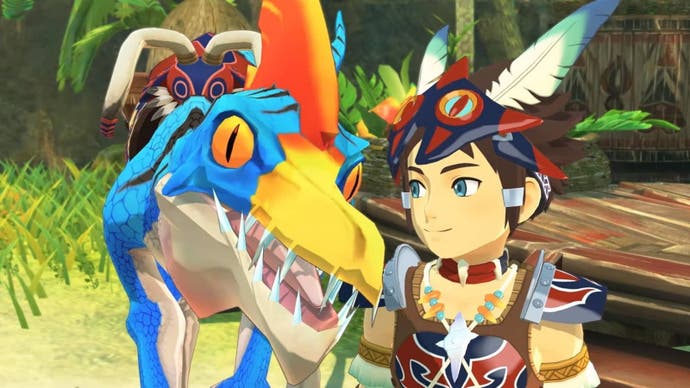
That's a lot better than my idea, which was just Monster Hunter Kart. A question for Mr. Tsujimoto - at the moment you can't really move for Monster Hunter, with Rise still doing well, Stories 2 about to launch and the movie recently hitting cinemas in the UK. A while ago you used to be asked all the time when will Monster Hunter break the west - it feels like you might have done that now! So what are the ambitions for the series next?
Ryozo Tsujimoto: We've certainly come very far. As you said, I've started interviews for the last 10 years or so with the inevitable question of when we were finally going to make it in the West. It's really great that we've got to the point of simultaneously releasing titles, whereas it used to be quite a long gap, which was impacting reception in the West. We've created this really great global community of Monster Hunter fans, many of whom have come in through the more recent games.
I don't want to rest on my laurels here - there's always more people you can reach, especially when it comes to an action game, which is quite complicated, like Monster Hunter. There are always going to be more players who feel perhaps put off by the complexity of the very rewarding complexity of the action. That's where titles like Monster Hunter Stories come in - perhaps they're intrigued by the world of the games, but they need a different entry point. They could start with Monster Hunter Stories, or even as you mentioned the live action movie. Going forward, I never want to make it feel like we've finished or we've achieved our goal. There will always be more games to make, and hopefully more ways to amaze and surprise players and future.
